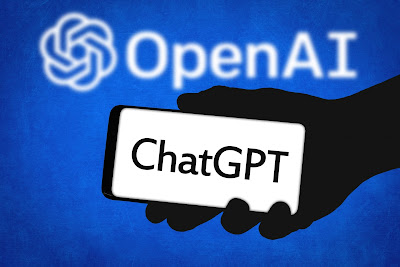ChatGPT is a large language model based on the GPT-4.0 architecture created by OpenAI. As a language model, ChatGPT is capable of processing and generating natural language text, allowing it to converse with users in a human-like manner. ChatGPT and other AI technologies have had a significant impact on people's lives and online experiences in several ways.
Improved customer service: Chatbots and virtual assistants have become increasingly common in customer service, allowing businesses to provide 24/7 support to their customers. AI-powered chatbots like ChatGPT can handle basic customer queries and provide instant responses, freeing up human customer service representatives to focus on more complex issues.
Personalization: AI-powered algorithms are used to personalize online experiences, such as recommending products, services, and content based on a user's previous behaviour and preferences. This enhances the user experience by delivering more relevant and tailored recommendations.
Medical Diagnosis: AI-powered systems can help medical practitioners to diagnose diseases and recommend treatments based on symptoms, patient history, and other data. AI-powered medical diagnosis systems can improve accuracy and reduce the time and cost associated with traditional diagnosis methods.
Automation: AI-powered automation is used in various industries, including manufacturing, logistics, and transportation, to optimize operations and reduce costs. This can lead to increased efficiency, faster turnaround times, and improved customer satisfaction.
Language translation: AI-powered language translation tools have improved access to information and communication across different cultures and languages, breaking down language barriers and promoting global collaboration.
AI technologies like ChatGPT have had a significant impact on people's lives and online experiences, enhancing efficiency, personalization, and accessibility in various fields. As AI technologies continue to evolve and become more sophisticated, they are likely to play an even greater role in shaping our lives and the way we interact with technology.
While AI technologies like ChatGPT have many benefits, there are also some potential negatives to consider. Here are some of the possible downsides of AI:
Bias: AI systems are only as objective as the data they are trained on. If the data is biased, the AI system may perpetuate or even amplify those biases. This can lead to discrimination and unfair treatment of certain groups.
Lack of empathy: While AI-powered chatbots like ChatGPT are designed to converse with humans in a human-like manner, they lack empathy and emotional intelligence. This can lead to frustrating or unsatisfactory interactions, particularly in situations where empathy and emotional support are needed.
Job displacement: AI-powered automation has the potential to replace human workers, particularly in industries where routine tasks can be easily automated. This can lead to job loss and economic disruption.
Privacy concerns: AI systems often collect and analyze large amounts of data about individuals, raising concerns about privacy and data security.
Dependence on technology: As AI systems become more integrated into our lives, there is a risk of becoming overly reliant on technology, which can have negative impacts on mental health, social interaction, and other aspects of human well-being.
It's important to acknowledge and address these potential downsides of AI to ensure that the technology is developed and implemented in a responsible and ethical manner. As AI technologies continue to evolve and become more ubiquitous, it will be increasingly important to strike a balance between the benefits and risks of these systems.
Source: Some or all of the content was generated using an AI language model


No comments:
Post a Comment